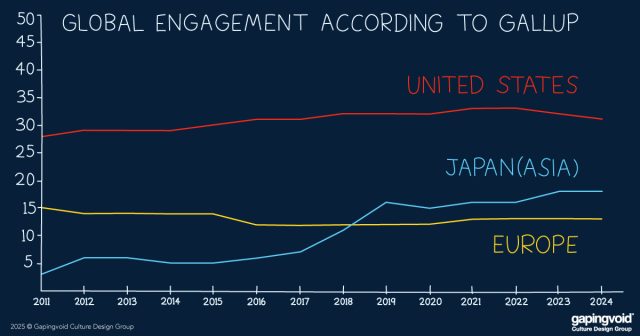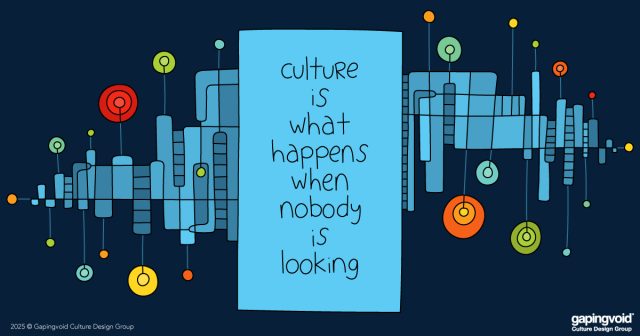
The title of this piece is basically the subtext of a growing trend reported in a recent WSJ article, “America Pulls Back From Values That Once Defined It.”
Patriotism, religion, relationships, having babies, hard work, etc are apparently less important than they used to be, even from only a few years ago. Isn’t it odd how things that were essential to human thriving for countless millennia, are so suddenly out of fashion?
One could argue that they haven’t fallen out of fashion so much, as they’ve become increasingly unobtainable. Or perhaps, we’re simply finding different things meaningful: money, of course, plus things like politics, culture wars, what Epicurus(d. 270 B.C.) called “Pleasure,” and cramming in as many Instagrammable moments as possible.
But by removing God from the equation, to riff on Blaise Pascal from 1670, we immediately create a God-size hole that needs to be filled.
What caught our eye was the framing of this conundrum as a *decline* in meaning. Is it really a *decline* in meaning, or an *increase* in something else?
An increase in “meaninglessness.” What YouTuber, Mike Vervaeke, from a secular POV calls “The Meaning Crisis.”
Meaninglessness might sound pretty awful at first, but it does carry a certain appeal.
It helps us justify living not as valued citizen-warriors of our own life, but as passive tourists in the ultimate tourist trap: existence itself. Just passing through, seeing the sites, checking out the local delights, not unlike a week in Antibes. No need to believe in anything. No need to fight for anything. Neither victory nor defeat, just comfort and selfies.
But ultimately, all we’re doing then is filling Pascal’s God-sized hole… with more hole.
This might also help explain why we see things like the 2022 Gallup poll which found less than a third of employees are “engaged” at work. The rest were just watching the clock or going to meetings.
It’s not that the inherent nature of work or life has become any less meaningful per se. Perhaps we’re just spending more and more time dealing with the meaningless. Bureaucratic roadblocks. Unnecessary meetings. Far too many pointless emails. Focusing less on why we’re doing things or who we’re serving, and more on just getting through the day.
A meaningless life just worries about itself, “What’s in it for me.” A meaningful life gives itself to others, to ideals, and to work that helps it all flourish. Whatever strata of society you may be occupying, it’s not a trend we read about in the news, but a choice we have to make ourselves. Because ultimately, what constitutes “nice things” is up to us.



